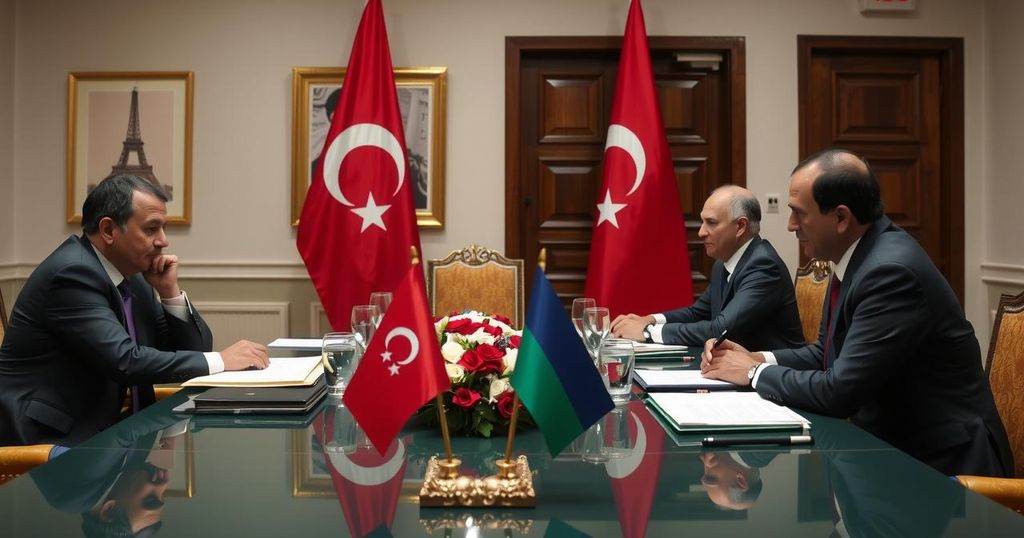Libyan Rivals Resume Morocco Talks to Resolve Political Deadlock

Libyan rival factions have resumed talks in Morocco to seek resolution to a political stalemate, which has persisted since their division in 2014. The negotiations involve discussions between the High Council of State and the House of Representatives, focusing on the necessity for unity and credible elections following the failed elections of 2021. These continued efforts aim to restore political coherence and stability in Libya.
Delegations representing competing Libyan institutions reconvened in Morocco on Wednesday, aiming to resolve a longstanding political impasse and avert a further descent into turmoil. Libya has faced significant instability since its bifurcation into eastern and western administrations in 2014, a division ensuing from the NATO-supported overthrow of Muammar Qaddafi in 2011.
The negotiations took place in Bouznika, near Rabat, and involved the High Council of State from Tripoli and the House of Representatives from Benghazi. Moroccan Foreign Minister Nasser Bourita implored the factions to collaborate towards the preservation of Libya’s unity and to embark on the roadmap for “credible elections.” He emphasized the indispensable nature of inter-Libyan dialogue, stating, “The numerous international and regional conferences on Libya will not replace the inter-Libyan dialogue which has credibility and ownership.”
The political reconciliation efforts have faced stagnation since the collapse of an election initially scheduled for December 2021, which was mired in disputes regarding candidate eligibility. The House of Representatives, elected in 2014 with a mandate to facilitate political transition, designated a rival government, contending that the governmental leadership held by the Prime Minister of the National Unity Government had expired. Although the eastern government remains weak, its establishment has exacerbated the ongoing division between Libya’s east and west.
Libya has endured a decade marked by turmoil and division since the fall of Muammar Qaddafi in 2011. The political landscape has been fragmented since 2014 when the country bifurcated into two rival administrations, leading to persistent strife and instability. Attempts at organizing elections to reconcile this division have failed, complicating the path toward unity and governance. The recent talks in Morocco symbolize ongoing efforts to navigate through Libya’s complex political challenges and ultimately restore balance within the nation.
The resumption of dialogue in Morocco represents a critical effort by Libyan rival factions to address the entrenched political deadlock that has impinged upon the country’s stability. With significant external and internal implications, the outcome of these consultations could pave the way for a potential resolution and establish a framework for future governance. The plea for unity and credible elections underscored by Moroccan officials highlights the pressing necessity of homegrown solutions to Libya’s political crisis.
Original Source: www.arabnews.com







